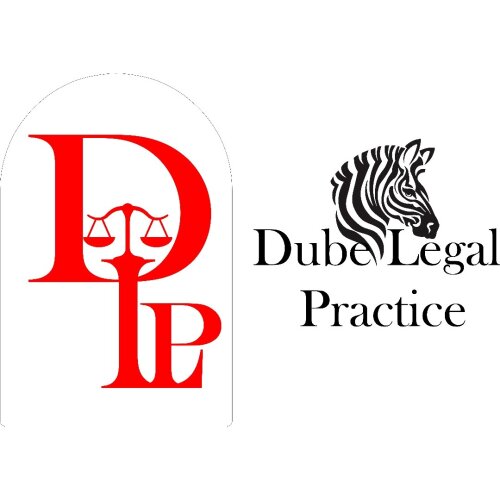Best Lawsuits & Disputes Lawyers in Bulawayo
Share your needs with us, get contacted by law firms.
Free. Takes 2 min.
List of the best lawyers in Bulawayo, Zimbabwe
About Lawsuits & Disputes Law in Bulawayo, Zimbabwe
Lawsuits and disputes law in Bulawayo, Zimbabwe, covers a wide range of legal conflicts that arise between individuals, companies, or organizations. These disputes can involve civil matters such as contract disagreements, property boundaries, inheritance issues, landlord-tenant conflicts, and consumer complaints. The legal system in Bulawayo is guided by Zimbabwean statute law, common law principles inherited from English law, and customary law where applicable. Courts in Bulawayo handle these disputes with the goal of delivering fair and just resolutions, either through litigation or alternative dispute resolution methods like mediation and arbitration.
Why You May Need a Lawyer
Lawsuits and disputes can be complex and emotionally taxing. Seeking the assistance of a qualified lawyer in Bulawayo is often critical for several reasons. Common situations where legal help is necessary include:
- Contract disputes between businesses or individuals
- Employment disagreements, such as wrongful termination claims
- Family law matters, including inheritance or divorce conflicts
- Property and land ownership disputes
- Tenant and landlord disagreements
- Defamation, libel, or slander cases
- Debt recovery issues
- Personal injury claims resulting from accidents
- Consumer protection disputes
A lawyer can help you understand your rights, gather strong evidence, navigate complicated procedures, and advocate for your best interest both inside and outside the courtroom.
Local Laws Overview
In Bulawayo, lawsuits and disputes are primarily governed by the national laws of Zimbabwe, which include the Civil Evidence Act, High Court Act, Magistrates Court Act, and various statutory instruments. Key aspects to note include:
- The Magistrates Court has jurisdiction over most civil disputes of a lower monetary value, while the High Court addresses cases involving higher values or complex legal questions.
- Litigation usually begins with a written summons, followed by the exchange of pleadings, discovery, and a hearing or trial.
- Court fees must be paid when initiating legal action, but provisions exist for indigent litigants who cannot afford them.
- There are prescribed time limits, known as prescription periods, within which different types of claims must be filed, otherwise the right to sue may be lost.
- Mediation and arbitration are increasingly encouraged to resolve disputes without the need for a lengthy trial.
- Appeals from the Magistrates Court go to the High Court, while High Court decisions can be appealed to the Supreme Court.
- Local customary law can influence cases, especially in family or inheritance disputes.
It is important for parties in Bulawayo to seek legal advice early on, as mistakes in the process can lead to a loss of rights or delay the resolution of the dispute.
Frequently Asked Questions
What is the first step in starting a lawsuit in Bulawayo?
The process typically begins by consulting a lawyer who will help you draft and file a summons or claim with the appropriate court. The defendant is then served with a copy and given a chance to respond.
How much does it cost to file a lawsuit?
Costs can vary depending on the type of dispute and the court involved. There are filing fees, legal representation costs, and possible expenses for summons delivery and expert witnesses. Fee waivers may be available for those with financial hardship.
What types of civil disputes are handled by the Magistrates Court?
The Magistrates Court deals with most civil disputes involving lower monetary amounts, such as small debts, minor contract issues, and certain landlord-tenant cases.
Can I represent myself in court?
Yes, individuals are allowed to represent themselves, but the process can be challenging without legal knowledge. Engaging a lawyer is recommended for better outcomes.
What is the role of mediation in resolving disputes?
Mediation is a voluntary process where a neutral third party helps the disputing parties reach a mutually acceptable solution. It is faster and less expensive than a court trial, and is encouraged by courts before litigation proceeds.
How long does it take for a case to be resolved?
The duration depends on the complexity of the case, the court’s schedule, the parties’ cooperation, and whether alternative dispute resolution is used. Simple matters may resolve in a few months, while complicated cases can take much longer.
Are there time limits for filing lawsuits?
Yes, each type of claim has a prescription period, usually ranging from one to three years from the date the dispute arises. Failing to file within these limits could result in dismissal.
Can a court decision be appealed?
Yes, if you disagree with the court’s ruling, you typically have the right to appeal to a higher court within a specified period after judgment.
What happens if I lose a lawsuit and cannot pay the judgment?
If you are unable to pay a court-ordered judgment, the winning party can apply to enforce it through methods like garnishment of wages or property attachment. It is important to discuss your situation with a lawyer to explore possible solutions.
How do I find a reputable lawyer in Bulawayo?
You can contact the Law Society of Zimbabwe for a list of registered lawyers and law firms in Bulawayo, or seek referrals from trusted community members and organizations.
Additional Resources
Several institutions and organizations in Bulawayo and Zimbabwe can provide assistance or further information on lawsuits and disputes:
- The Law Society of Zimbabwe - Regulates legal practitioners and can provide referrals
- Bulawayo High Court - Handles complex civil disputes and appeals
- Magistrates Court Bulawayo - For lower value civil disputes and small claims
- Zimbabwe Lawyers for Human Rights - Offers legal support for rights-based claims
- Legal Aid Directorate - Provides legal aid for qualifying low-income individuals
- Community-based organizations that offer mediation services
Next Steps
If you are involved in a lawsuit or dispute in Bulawayo, Zimbabwe, consider taking the following steps:
- Collect and organize all documents and evidence related to your dispute
- Consult with a qualified lawyer to assess the merits of your case and available options
- Discuss the possibility of resolving the dispute through negotiation, mediation, or arbitration before going to court
- Be aware of and respect all court deadlines and procedural requirements
- If cost is a concern, explore legal aid resources or seek assistance through community organizations
- Stay informed throughout the process and maintain clear communication with your legal representative
Taking early and informed action with qualified legal assistance can greatly improve your chances of reaching a fair and timely resolution to your lawsuit or dispute in Bulawayo.
Lawzana helps you find the best lawyers and law firms in Bulawayo through a curated and pre-screened list of qualified legal professionals. Our platform offers rankings and detailed profiles of attorneys and law firms, allowing you to compare based on practice areas, including Lawsuits & Disputes, experience, and client feedback.
Each profile includes a description of the firm's areas of practice, client reviews, team members and partners, year of establishment, spoken languages, office locations, contact information, social media presence, and any published articles or resources. Most firms on our platform speak English and are experienced in both local and international legal matters.
Get a quote from top-rated law firms in Bulawayo, Zimbabwe — quickly, securely, and without unnecessary hassle.
Disclaimer:
The information provided on this page is for general informational purposes only and does not constitute legal advice. While we strive to ensure the accuracy and relevance of the content, legal information may change over time, and interpretations of the law can vary. You should always consult with a qualified legal professional for advice specific to your situation.
We disclaim all liability for actions taken or not taken based on the content of this page. If you believe any information is incorrect or outdated, please contact us, and we will review and update it where appropriate.
Browse lawsuits & disputes law firms by service in Bulawayo, Zimbabwe
Bulawayo, Zimbabwe Attorneys in related practice areas.











